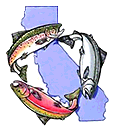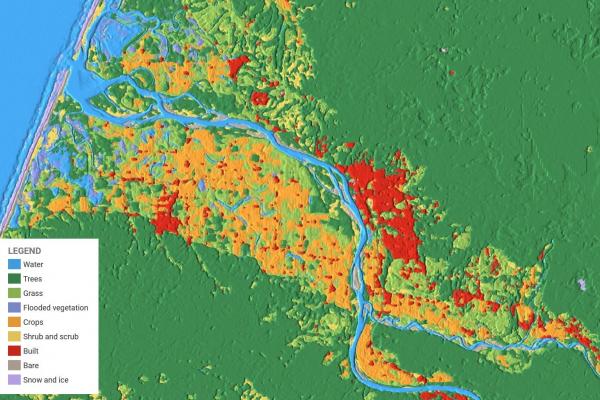Taking the Pulse: Measuring Restoration Success
April 29 - May 2, 2025
Remote Sensing Tools for Restoration Planning and Assessment: A Practical Hands-on Introduction
30 April 2025
9:00am - 5:00pm
Workshop Coordinators: Emily Fairfax, University of Minnesota; Eli Asarian, Riverbend Sciences; Adam Cummings and David Dralle, U.S. Forest Service Pacific Southwest Research Station; and Mitzi Wickman, Mid Klamath Watershed Council
Do you want to travel through time, see patterns and colors not visible to the naked eye, and soar thousands of feet in the sky over your field sites? You can - with remote sensing! This full-day workshop provides a hands-on introduction to get you started using remotely sensed datasets and tools for restoration planning and assessment. Thanks to recent technological advances and ever-expanding availability and quality of data, what was once only possible in science fiction is now readily doable from the comfort of your home or office. And this workshop will show you how. We demystify remote sensing by introducing attendees to easy-to-use “no-code” and “low-code” tools, ranging from just your web browser to GIS softwares to simple snippets of R and Earth Engine code.
In the morning, instructor presentations will cover topics including:
-
Remote sensing introduction
-
Available data types (e.g., imagery, vegetation, topography, land cover, land use, and climate) and what they are useful for
-
How to efficiently access and analyze these data to better understand landscape conditions and subsequent response to disturbances and/or restoration work
-
A preview of the afternoon activities
In the afternoon, participants who bring laptops* will have a hands-on opportunity to explore data, test-drive tools, and work on projects with instructors available for guidance and troubleshooting. Participants can choose from:
-
Working through a step-by-step instructor-led example project moving through the steps together as a group in one room, but on your own laptop
-
Doing several different short step-by-step tasks that match your interests, selecting from a menu of ≥14 tutorials listed in handouts
-
If you have a particular location and/or question in mind, you can work on your own mini-project with personalized light guidance from instructors
*We hope to provide some extra laptops on site
Examples of practical topics includes in this workshop are: 1) where to find and browse historical and current satellite imagery, aerial photographs, and other remote-sensed data products; 2) how to delineate watersheds upstream of a point; 3) how to generate summarized time series of vegetation, land cover, and climate for areas of interest to assess effects of management, beaver activity, fires, floods, and landscape changes; and 4) tools for analyzing topography. Participants will be given handouts with a list of tools and applications.
A similar workshop at SRF 2023 received positive reviews from many attendees. The 2025 workshop will be an updated version, with substantial overlap but also new and revised content. Workshop content will be customized to attendee interests based on results of a pre-conference survey.

